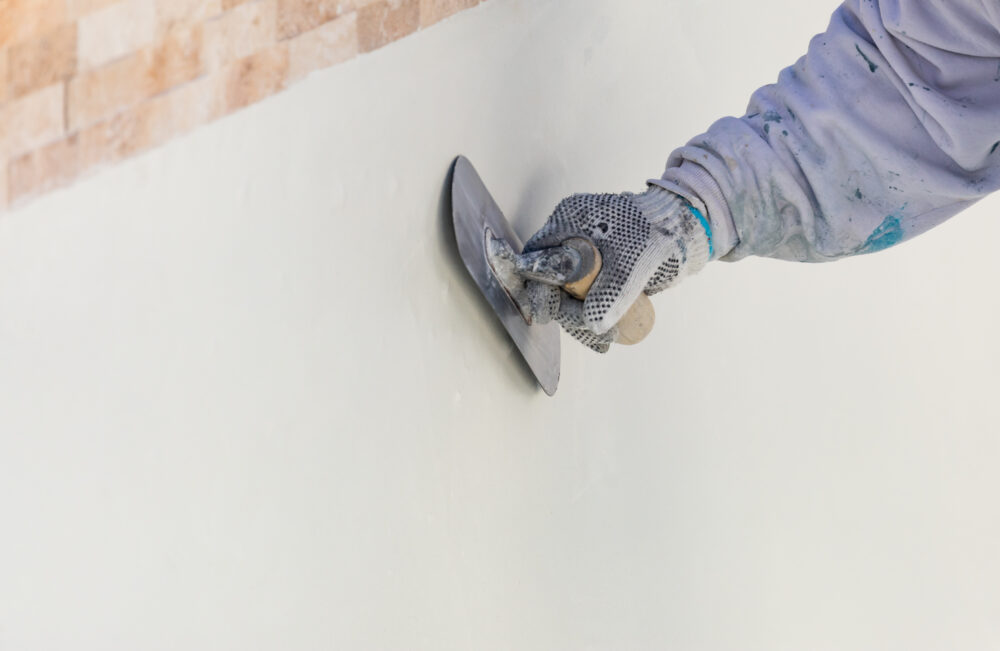Understanding Different Types of Pool Plaster: A Comprehensive Guide
When it comes to creating a beautiful and long-lasting swimming pool, choosing the right pool plaster is essential. Pool plaster not only enhances the aesthetics of your pool but also provides a protective and waterproof layer. However, with various types of pool plaster available in the market, it can be overwhelming to make the right choice. In this comprehensive guide, we will explore different types of pool plaster and help you understand their characteristics, advantages, and considerations.

White Marcite Plaster
White marcite plaster is the most common and traditional type of pool plaster. It is a mixture of white Portland cement, marble dust, and water. This classic plaster creates a smooth and elegant surface, giving your pool a timeless look. White marcite plaster is cost-effective and readily available. However, it tends to wear down over time and may require resurfacing every five to ten years.
Exposed Aggregate Plaster
If you prefer a more textured and visually appealing finish, exposed aggregate plaster might be the right choice for you. This type of plaster incorporates materials like pebbles, glass beads, or quartz crystals into the mix. When applied, the surface is polished to reveal the embedded aggregates, resulting in a stunning and unique appearance. Exposed aggregate plaster offers enhanced durability and is less prone to staining compared to traditional white plaster. It requires less frequent resurfacing and can withstand heavy pool usage.
Colored Plaster
For those looking to add a splash of color to their pool, colored plaster is an excellent option. Colored pigments are added to the plaster mix, giving you a wide range of hues to choose from. You can select colors that complement your outdoor space or create a specific ambiance. Colored plaster provides a beautiful and vibrant finish, making your pool stand out. It is worth noting that some colored plaster may fade or change slightly over time due to exposure to chemicals and sunlight.
Quartz Plaster
Quartz plaster is a premium option known for its durability and strength. It consists of white Portland cement, quartz aggregates, and colored pigments if desired. The quartz crystals in the plaster create a sparkling effect that adds a luxurious touch to your pool. This type of plaster is highly resistant to chemical imbalances, staining, and algae growth. It also has a longer lifespan compared to traditional white plaster, reducing the need for frequent resurfacing.
Tile Plaster
If you’re looking for a distinctive and upscale finish, tile plaster is an excellent choice. This type of plaster is specifically designed to create a surface that resembles individual tiles. It involves placing small, square or rectangular tiles within the plaster mix to achieve a tiled appearance. Tile plaster offers excellent durability, and the tiles can be customized to suit your desired style and color scheme. It provides a visually stunning finish but can be more expensive and requires meticulous installation.
Considerations for Pool Plaster Selection
- Climate: Consider the climate in your area as it can affect the longevity and performance of different plaster types. Some plasters may be more suitable for extreme temperatures or high UV exposure.
- Budget: Set a budget for your pool project and choose a plaster type that fits within your financial constraints. Keep in mind that premium options like quartz plaster and tile plaster may have higher upfront costs.
- Aesthetics: Think about the look and feel you want to achieve for your pool. Each plaster type has its own unique appearance, so select one that aligns with your design preferences.
- Maintenance: Understand the maintenance requirements of different plaster types. Some may require more frequent cleaning or chemical balancing to preserve their appearance and durability.
- Professional Installation: Ensure that the plaster installation is carried out by experienced professionals who follow proper techniques. Quality installation plays a significant role in the longevity and performance of your pool plaster.
In conclusion, choosing the right pool plaster is crucial for the overall look and durability of your swimming pool. Consider the characteristics, advantages, and considerations of different plaster types before making a decision.
Contact us at Wimberley Pools & Spas if you’re ready to install plaster! With our expertise, we can help you choose between the different types of plaster and create a stunning pool design that enhances your outdoor space and provides years of enjoyment.
